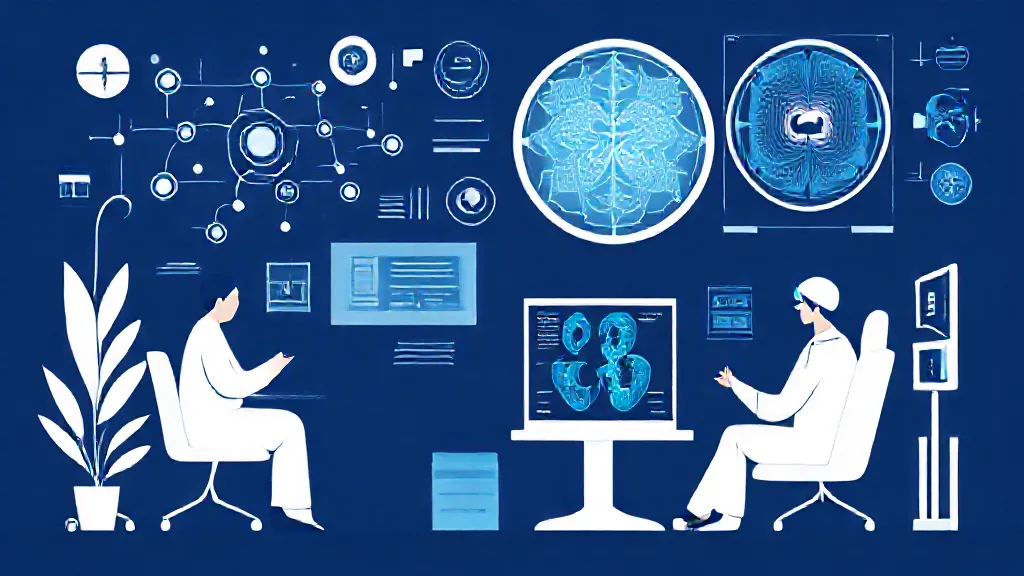Artificial Intelligence (AI) is increasingly becoming a cornerstone of modern healthcare, reshaping the way medical professionals diagnose, treat, and manage diseases. The integration of AI technologies into healthcare systems is enabling more accurate diagnoses, personalized treatment plans, and improved patient outcomes. This article delves into the various facets of AI in healthcare, highlighting its benefits, challenges, and future potential.
AI in Diagnostics: Improving Accuracy and Speed
AI algorithms, particularly those based on machine learning, have shown remarkable capabilities in analyzing medical data. For instance, AI systems can process thousands of medical images in seconds, identifying patterns that may elude human eyes. A notable example is the use of AI in radiology, where deep learning models assist radiologists in detecting anomalies in X-rays and MRIs.
A study published in the journal Nature demonstrated that an AI model could match or even surpass human experts in identifying breast cancer in mammograms, significantly reducing false positives and negatives.
Personalized Medicine: Tailoring Treatments to Individuals
One of the most promising applications of AI in healthcare is its role in personalized medicine. By analyzing vast datasets, including genetic information, lifestyle choices, and environmental factors, AI can help clinicians develop tailored treatment plans for individual patients.
For example, AI-driven platforms can predict how patients will respond to specific medications based on their genetic makeup, leading to more effective and safer treatment options. Companies like Tempus are at the forefront of this movement, using AI to analyze clinical and molecular data to guide oncologists in selecting the best therapies for cancer patients.
Enhancing Patient Engagement and Monitoring
AI is also transforming the way patients engage with their healthcare providers.
Through chatbots and virtual health assistants, patients can receive immediate answers to their queries, schedule appointments, and even receive reminders for medication adherence. These AI-driven tools enhance patient engagement by providing a convenient and accessible means of communication. Moreover, wearable devices equipped with AI algorithms can monitor patients' vital signs in real-time, alerting healthcare professionals to any concerning changes.
This proactive approach enables timely interventions and reduces hospital readmission rates.
Streamlining Administrative Processes in Healthcare
The administrative side of healthcare often involves tedious tasks that can be streamlined through AI. Automating processes such as billing, appointment scheduling, and patient record management can significantly reduce administrative burdens on healthcare staff.
For instance, AI-powered systems can analyze insurance claims to identify discrepancies and expedite approvals, ensuring that healthcare providers receive timely payments. This efficiency not only saves time but also allows healthcare professionals to focus more on patient care rather than paperwork.
Challenges and Ethical Considerations in AI Implementation
Despite its many advantages, the integration of AI in healthcare is not without challenges.
Concerns regarding data privacy, security, and ethical implications of AI decision-making are paramount. The sensitive nature of health data necessitates stringent security measures to protect patient information from breaches. Additionally, the reliance on AI for critical healthcare decisions raises questions about accountability and transparency.
It is essential for healthcare organizations to establish robust frameworks that address these ethical considerations while leveraging AI technology.
The Future of AI in Healthcare: Trends and Innovations
As technology continues to evolve, the future of AI in healthcare looks promising. Innovations such as natural language processing (NLP) are enabling AI systems to interpret unstructured data from clinical notes, enhancing the ability to extract valuable insights from patient records.
Furthermore, advancements in robotics and AI-assisted surgeries are revolutionizing surgical procedures, leading to minimally invasive techniques and quicker recovery times. Continuous research and development in AI are likely to yield even more groundbreaking applications in the coming years.
AI's Role in Public Health and Disease Prevention
AI is not only transforming individual patient care but also playing a crucial role in public health initiatives.
By analyzing data from various sources, AI can identify trends and outbreaks of diseases, enabling health authorities to respond swiftly. For instance, during the COVID-19 pandemic, AI models were employed to predict infection rates and optimize resource allocation in hospitals. Such applications underscore the potential of AI in enhancing public health surveillance and disease prevention strategies.
Conclusion: Embracing AI for a Healthier Tomorrow
In conclusion, the integration of Artificial Intelligence into healthcare is paving the way for a more efficient, accurate, and personalized approach to patient care. While challenges remain, the potential benefits of AI in improving diagnostics, treatment, and patient engagement are undeniable. As healthcare continues to embrace technological advancements, the collaboration between AI and healthcare professionals will be essential in shaping the future of medicine, ultimately leading to better health outcomes for patients worldwide.
